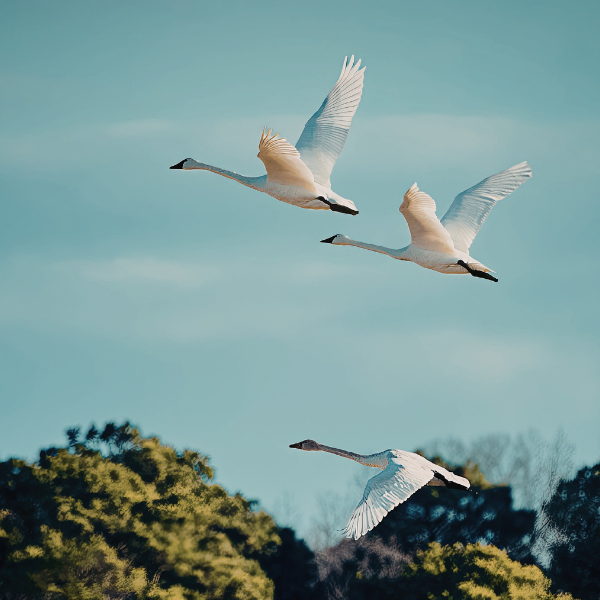Last spring we launched a series with poets whose work we love and want to feature and will continue it moving forward.
Our next poet is Tania Runyan whose work is centered on grappling with biblical themes and contradictions. Read her poetry and discover more about the connections she makes between poetry and the sacred.
Man is Without Excuse
Perhaps you could say that in Rome, Paul,
where the olive trees of the Seven Hills
strung their pearls of rain against the sky.
And yes, as I hike Glacier Park
with a well-stocked pack, I can welcome
God’s ambassadors of fireweed and paintbrush,
the psalmic rhythm of lake hitting shore.
But as the refugee trudges
from Mogadishu to Dabaab, is she to catch
a glimpse of antelope bone in the thicket
and intuit the sufferings of the Son of Man?
She wears her own nails and crown.
An Eden of lizards surges at her heels,
but she wonders at nothing
but the sore-studded daughter she left to die
on the road, and now, the baby
strapped to her back: six pounds
at one year old. He no longer cries
but flutters small breaths on her neck
like the golden wings of moths
she counts with worshipful attention.
(First appeared in The Christian Century, 2012. Also appears in Second Sky.)
Themes of Her Work
Some years ago, I became obsessed with writing about scripture: women of the Bible in A Thousand Vessels, the Beatitudes in Simple Weight, Paul and his writings in Second Sky, and Revelation (I know, right?) in What Will Soon Take Place. In these books, I explore difficult themes, such as misogyny, violence, doubt, and contradictions. I’ve learned that facing what I would rather avoid results in my strongest writing because I have to grapple with honest feelings and doubts. Why approach God with anything less?
Poetry and the Sacred
In The Naked Now, Richard Rohr writes, “prayer is actually setting out a tuning fork. All you can really do in the spiritual life is get tuned to receive the always present message.” People can access that message through traditional forms of prayer and worship or through music and art. They can find it while playing beach volleyball or filling their car up with gas. I receive it by setting out my tuning fork of poetry.
Poetry has afforded me the freedom to explore what can’t be spoken with images, to reflect my feelings by tapping into sound, and to express what I “really” mean with figurative language. Playing with poetic language offers what Brad Fruhauff describes as “the freedom Christ beckons us toward, a freedom to explore and enjoy the world without shame or fear.”
Without shame or fear, I can approach God boldly. With boldness comes honesty, and with honesty, intimacy. This is the presence of the sacred.
Our Sins under a Glass Sea
Jesus wanted to shout damn it to hell!
when he dropped the jar of mayonnaise,
the words not a temptation as much as succumbing
to a belief in personal justice,
cursing a world that dare exist
without intact jars and the right to fork
modified food starch through tuna on demand.
Instead, he mended the glass outside
of time and space, invited the twenty-four elders
with emerald butter knives to spread their riches
on slices of bread. He smirked at the bespattered
refrigerator door, breathed YHWH
as he hunkered over the slimy shards
with a roll of paper towels. His knuckles scraped
the floor as he scrubbed oil from the grout,
lightning flashing in the dustpan by his side.
(First appeared in Rock & Sling, 2015. Also appears in What Will Soon Take Place.)
About Tania Runyan
Tania Runyan is the author of the poetry collections What Will Soon Take Place, Second Sky, A Thousand Vessels, Simple Weight, and Delicious Air, which was awarded Book of the Year by the Conference on Christianity and Literature in 2007. Her guides How to Read a Poem, How to Write a Poem, and How to Write a College Application Essay are used in classrooms across the country. Her poems have appeared in many publications, including Poetry, Image, Harvard Divinity Bulletin, The Christian Century, Saint Katherine Review, and the Paraclete book Light upon Light: A Literary Guide to Prayer for Advent, Christmas, and Epiphany. Tania was awarded an NEA Literature Fellowship in 2011.
Dreaming of Stones
Christine Valters Paintner‘s new collection of poems Dreaming of Stones has just been published by Paraclete Press.
The poems in Dreaming of Stones are about what endures: hope and desire, changing seasons, wild places, love, and the wisdom of mystics. Inspired by the poet’s time living in Ireland these readings invite you into deeper ways of seeing the world. They have an incantational quality. Drawing on her commitment as a Benedictine oblate, the poems arise out of a practice of sitting in silence and lectio divina, in which life becomes the holy text.


